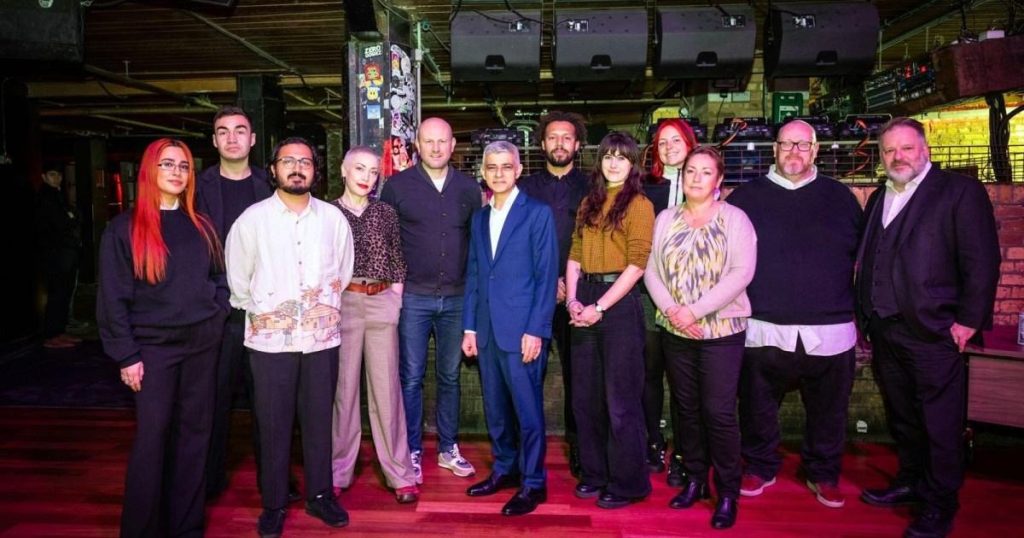Revitalizing London’s Nightlife: Addressing the Challenges and Seeking Solutions
London’s nightlife, a vibrant tapestry of music venues, nightclubs, bars, and restaurants, has faced significant challenges in recent years. The COVID-19 pandemic dealt a devastating blow, with lockdowns forcing closures and drastically altering social habits. Even as the city has emerged from the pandemic’s grip, the nightlife sector continues to grapple with a 19% decline in late-night venues. Iconic establishments like Tiger Tiger and G-A-Y have shuttered their doors or announced plans to sell, highlighting the precarious situation faced by many businesses. This decline is attributed to a combination of factors, including stringent licensing regulations, noise complaints from residents, and the changing dynamics of specific areas. Recognizing the critical role nightlife plays in the city’s cultural fabric and economy, Mayor Sadiq Khan has launched a new initiative aimed at reversing this trend and injecting fresh energy into London’s after-dark scene.
The newly formed Nightlife Taskforce, announced in October 2023, comprises a diverse group of stakeholders representing various facets of the night time economy. From venue owners and operators to representatives of industry bodies and artists, the taskforce brings a wealth of experience and expertise to the table. The group’s mandate is to explore solutions and make recommendations to the Mayor on how to revitalize London’s nightlife. Key areas of focus include addressing the tension between nightlife venues and residents, potentially through measures like mandatory sound insulation in new developments near existing establishments. The taskforce will also examine the possibility of extending alcohol licensing hours and expanding the Night Tube service to improve accessibility and convenience for nighttime revelers.
One of the central challenges facing London’s nightlife is the delicate balance between the vibrancy of late-night activity and the needs of residents. The term "NIMBY" (Not In My Backyard) often arises in discussions about urban development and captures the resistance some residents display towards changes that may disrupt their peace and quiet. In areas with a thriving nightlife scene, noise complaints can become a major source of contention between venue owners and residents. The taskforce aims to address this tension by seeking solutions that benefit both sides. Requiring developers to incorporate soundproofing measures in new buildings situated near existing nightlife venues is one potential strategy to mitigate noise issues. This proactive approach seeks to prevent future conflicts and foster a more harmonious coexistence between residents and businesses.
The complexities of navigating licensing regulations and securing approvals for even minor expansions pose significant hurdles for businesses in the hospitality sector. Victor Garvey, owner of the Michelin-starred restaurant SOLA in Soho, encountered these challenges firsthand. His desire to extend his operating hours by a small increment was met with resistance, highlighting the difficulties businesses face when seeking to adapt and grow. Such experiences underscore the need for a more streamlined and supportive regulatory environment that allows businesses to thrive while also addressing legitimate concerns regarding noise and other potential impacts on residents. The taskforce will explore ways to simplify licensing procedures and create a more conducive atmosphere for businesses to operate and expand.
The Nightlife Taskforce is spearheaded by Cameron Leslie, co-founder of the renowned nightclub Fabric, and includes representatives from a wide range of venues and industry bodies. This diverse composition ensures that multiple perspectives are considered in the taskforce’s deliberations. Members such as Nadine Noor, founder of Pxssy Palace, and representatives from key organizations like UK Hospitality and the Night Time Industries Association bring invaluable insights into the challenges and opportunities facing London’s nightlife. The taskforce’s collaborative approach aims to foster a comprehensive understanding of the issues and develop solutions that benefit all stakeholders. Their recommendations will play a crucial role in shaping the future of London’s after-dark scene.
The taskforce will engage in a six-month consultation period, gathering input from various sources, including Transport for London and the Metropolitan Police, before presenting their recommendations to Mayor Khan. This consultative process aims to ensure that the proposed solutions are well-informed and address the complex interplay of factors that influence London’s nightlife. The goal is to create a vibrant and sustainable nightlife ecosystem that benefits businesses, residents, and visitors alike. The taskforce’s work represents a crucial step towards revitalizing London’s after-dark scene and ensuring its continued contribution to the city’s cultural richness and economic vitality. The outcome of their efforts will significantly impact the future of London’s nightlife, and their recommendations will be eagerly awaited by all those invested in the city’s vibrant after-dark scene.


